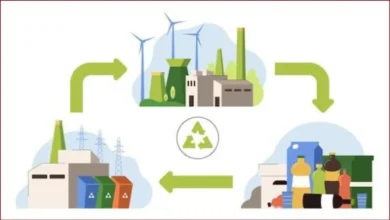Secure Social Housing Investments as a Path to Sustainable

In the rapidly evolving world of 21st century investment, where financial gains are increasingly intertwined with ethical considerations, Environmental, Social, and Governance (ESG) factors have taken centre stage. Investors are no longer solely focused on profits; they seek opportunities that align with their values and contribute to a better world. Secure social housing investments, backed by the government, are a prime example of how ESG principles can be integrated into a profitable and sustainable investment strategy.
Social Housing and ESG: A Natural Alignment
Secure social housing investments inherently align with ESG principles, making them a compelling choice for conscientious investors. By their very nature, these investments address pressing social issues, such as affordable housing shortages and housing insecurity.
The social impact of providing safe, decent, and affordable homes to individuals and families in need cannot be overstated. This alignment with the “S” (Social) pillar of ESG is a cornerstone of the appeal of secure social housing investments.
Beyond Shelter: Fostering Thriving Communities
The positive social impact of secure social housing investments extends far beyond simply providing shelter. Affordable housing is a fundamental building block for thriving communities. It enables individuals and families to access education, employment, healthcare, and other essential services.
Stable housing also contributes to improved mental and physical health outcomes, reduced crime rates, and increased social mobility. Investing in secure social housing is an investment in the well-being of individuals and the fabric of society itself.
Environmental Sustainability: Building a Greener Future
Secure social housing investments are not only socially responsible but also environmentally sustainable. As the world grapples with the urgent need to reduce carbon emissions and mitigate climate change, the construction and operation of energy-efficient homes have become paramount.
Many social housing projects are at the forefront of incorporating sustainable building practices, such as utilizing renewable energy sources, implementing water conservation measures, and prioritizing the use of eco-friendly materials. These efforts not only benefit the environment but also reduce operating costs for tenants, further enhancing the affordability and sustainability of social housing.
Citygate: A Champion of Sustainable Social Housing
Citygate has established itself as a trailblazer in the realm of sustainable social housing. Their approach goes beyond simply providing investors access to investment in affordable homes. They are deeply committed to sourcing communities that are both environmentally friendly and socially responsible.
Citygate’s chosen investment projects are designed to minimize their carbon footprint and reduce energy consumption. They achieve this through a variety of measures, including:
High-Performance Insulation
Citygate homes are equipped with advanced insulation materials that help maintain comfortable temperatures year-round, reducing the need for heating and cooling and lowering energy bills for residents.
Energy-Efficient Appliances
Citygate looks for developments which incorporate energy-efficient appliances, such as LED lighting and low-flow plumbing fixtures, which further reduce energy and water consumption.
Renewable Energy Sources
Where feasible, Citygate sources investments that have integrated renewable energy sources like solar panels into their projects, offsetting reliance on fossil fuels and contributing to a cleaner energy grid.
Sustainable Building Materials
Citygate prioritizes projects that have made use of sustainable building materials, such as recycled or locally sourced products, which minimize environmental impact and support local economies.
In addition to their environmental focus, Citygate is deeply committed to the social well-being of the communities they serve. The developments their investors undertake often include community spaces, gardens, and playgrounds, fostering a sense of belonging and connection among residents.
They also prioritize tenant engagement and support services, ensuring that residents have access to resources and opportunities to thrive.
By prioritizing sustainability and social impact, Citygate is not only investing in healthier and more liveable communities, but also enhancing the long-term value of their investments.
Sustainable buildings are more attractive to tenants, leading to higher occupancy rates and lower turnover. They also tend to have lower operating costs due to reduced energy consumption, which translates to greater profitability for investors.
Citygate’s success serves as a testament to the fact that secure social housing investments can be both financially rewarding and socially responsible. Their commitment to ESG principles is a model for others in the sector, demonstrating that it’s possible to build a sustainable future while generating attractive returns for investors.
Citygate’s dedication to ESG is not just a marketing ploy. It’s woven into the fabric of their business model. This commitment to continuous improvement ensures that Citygate remains at the forefront of the sustainable social housing movement.
The Growing Demand for ESG Investments: A Sustainable Trend
The demand for ESG investments has surged in recent years, as investors increasingly recognize the importance of aligning their portfolios with their values. Secure social housing investments, with their strong ESG credentials, are well-positioned to capitalize on this growing trend.
As more investors seek out opportunities that generate both financial returns and positive social and environmental impact, secure social housing investments are poised to become an even more attractive option in the years to come.
At the end of the day, for those looking for a more socially conscious way to build wealth, secure social housing investments offer a compelling pathway to building a sustainable portfolio that not only generates financial returns but also contributes to a better world.
By aligning with ESG principles and prioritizing social and environmental impact, these investments represent a win-win proposition for both investors and society as a whole.
Choosing Your Secure Social Housing Investment: A Practical Guide
While the numerous benefits of secure social housing investments are clear, navigating the specific options available can seem daunting. Choosing the right investment requires careful consideration and due diligence. Here’s a practical guide to help you make informed decisions:
Understand Your Investment Goals
Before diving into any investment, it’s crucial to define your objectives. Are you seeking long-term, stable income? Are you looking to diversify your portfolio? Or are you primarily motivated by social impact? Your goals will guide your investment choices and help you identify the most suitable options.
Assess Your Risk Tolerance
Like any investment, secure social housing investments carry some level of risk. While the government backing mitigates many risks, factors like changes in government policy or economic downturns can still affect returns. Understanding your risk tolerance is crucial for choosing an investment that aligns with your comfort level.
Evaluate Investment Structures
Secure social housing investments come in various forms. You can invest directly in a property, participate in a social housing fund, or invest in a real estate investment trust (REIT) specializing in social housing. Each structure has its own risk-return profile and liquidity considerations.
Direct Investment: Offers more control and potential for higher returns but requires more capital and active management.
Funds: Provide diversification and professional management but may have higher fees.
REITs: Offer liquidity and diversification, but may have lower returns compared to direct investment.
Research and Due Diligence: Thorough research is essential before committing to any investment. Investigate the track record of the project developer and management company. Analyse the financials, including projected income and expenses, rent levels, and occupancy rates. Consider the location of the project, the tenant demographics, and the regulatory environment. Don’t hesitate to seek professional advice from financial advisors or real estate experts.
Consider Impact Alongside Returns: While financial returns are important, don’t overlook the social impact of your investment. Research the project’s social mission and how it aligns with your values. Consider factors like tenant support services, community engagement, and environmental sustainability.
Diversification is Key: As with any investment portfolio, diversification is crucial. Don’t put all your eggs in one basket. Spread your investments across different social housing projects, locations, and investment structures to reduce risk and maximize potential returns.
By following these guidelines, you can confidently navigate the world of secure social housing investments and choose options that align with your financial goals and values. Remember, a well-informed investor is a successful investor.



